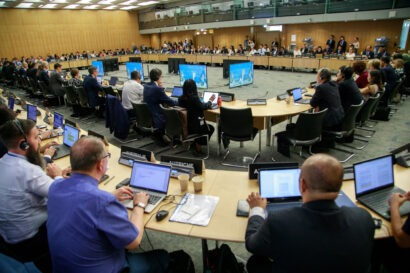Recent years have witnessed an accelerating push to expand access to information on the beneficial ownership of corporate entities, in an effort to bring greater transparency to multinational corporation tax strategies; identify personal tax-evading wealth held overseas; and combat global networks of criminality and corruption. There is enormous potential for these efforts to contribute to improvements in tax collection in low-income countries. However, there are also significant reasons to worry that this potential may not be fully realised in practice.
There is an increasingly evident need for those involved in these debates to begin to more systematically assess whether or not expected benefits are likely to be realised in practice, in different contexts, in order to inform the extent to which low-income countries – and their supporters – should (or should not) invest priority resources in supporting, and advancing, these efforts, and related initiatives around Automatic Exchange of Information (AEOI) and Base Erosion and Profit Shifting (BEPS).
Thus, along with the Transparency and Accountability Initiative, we developed a policy brief to explore a critical question for governments and civil society:
To what extent are current efforts to expand access to information on beneficial ownership likely, in practice, to enhance the ability of low-income countries to increase tax collection?
The policy brief does not seek to answer this question, but rather to map a way forward in assembling the empirical material necessary to do so. It proposes that, in order for efforts to expand access to beneficial ownership to be translated into improved tax outcomes in low-income countries, three broad conditions will need to hold true to a meaningful extent:
1. Beneficial ownership information is relatively complete and accurate – including participation by all major jurisdictions
2. Major jurisdictions will reliably share that information with tax authorities in low-income countries
3. Tax authorities in low-income countries will need to be technically able, and politically willing, to make use of that data to strengthen tax enforcement
Each of these things may hold true. But there are also growing reasons to worry that, for low-income countries, they may not. The most urgent need is correspondingly for systematic, publicly available, research and data to assist low-income countries and their allies to assess the extent of likely benefits, cost and timelines. In turn, insofar as the realisation of these benefits is uncertain or costly, it makes sense for those same actors to at least consider potential alternative paths forward, in order to assess the strategies most likely to serve the interests of low-income interests.
Read the policy brief here.



